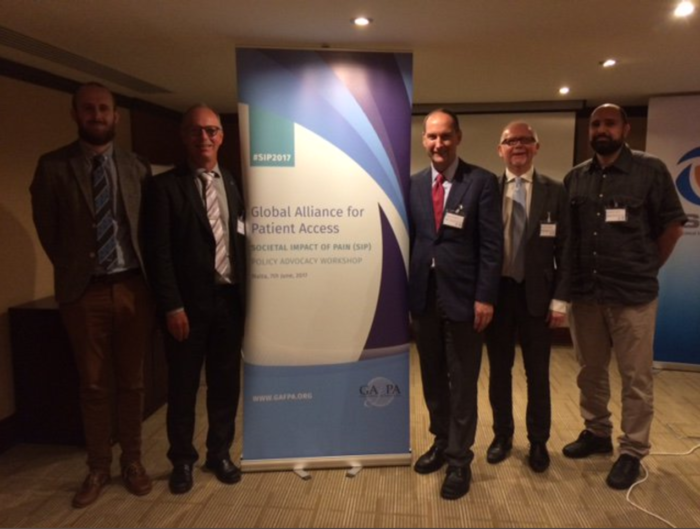Advocates Strategize on Pain Care Policy at GAfPA’s Malta Workshop
June 12, 2017
Young King David beat the biblical giant Goliath, as advocates at a Global Alliance for Patient Access workshop in Malta were recently reminded. In the same way, a small group of committed advocates can rival much larger, more powerful interest groups – impacting policy that protects patients’ best interests.

This theme set the backdrop for GAfPA’s June 7 advocacy workshop, which occurred ahead of the Societal Impact of Pain conference in Malta. The conference is an international platform for raising awareness about pain’s impact on societies, health and economic systems. It allows for the sharing of information and best practice among EU member countries and fosters European-wide policy strategies for improved pain care in Europe.
Chronic pain is one of GAfPA’s key areas of focus and an under-recognized therapy area of great importance to physicians and patients alike.
The GAfPA workshop drew participants from across Europe who represented a multitude of backgrounds – all linked through their work with pain. They included pain advocacy groups, health care professionals, medical societies and pharmaceutical manufacturing representatives.
The workshop featured presentations from leaders of three of the official partner organizations responsible for the Societal Impact of Pain program in 2017:
- From the European Pain Federation, Chris Wells and Sam Kynman detailed successes and challenges that their organization faces when advocating at the national and European level.
- From the Active Citizenship Network, Mariano Votta showcased some of the key initiatives and learnings from his organization, which encourages active participation of citizens in European policymaking.
- From Pain Alliance Europe, Joop van Griensven shared the thinking behind recent advocacy activities and rounded off the session by highlighting the real beneficiaries of strong advocacy activities: the patients.
Attendees also collaborated in small groups to explore advocacy challenges. They were asked to identify an access barrier to optimal pain care in their own countries; think about a policy solution to overcoming that barrier; and to draw on what they had learned during the workshop to determine how they might persuade policymakers to adopt a solution.
The objective was to arm patient advocates with tools to effectively advocate with policymakers in their own countries and highlight the issues surrounding access to optimal pain care.
GAfPA will continue its work in this area at the EFIC Pain Congress 2017 in Copenhagen this September.
Tags: PainCategorized in: Blog

